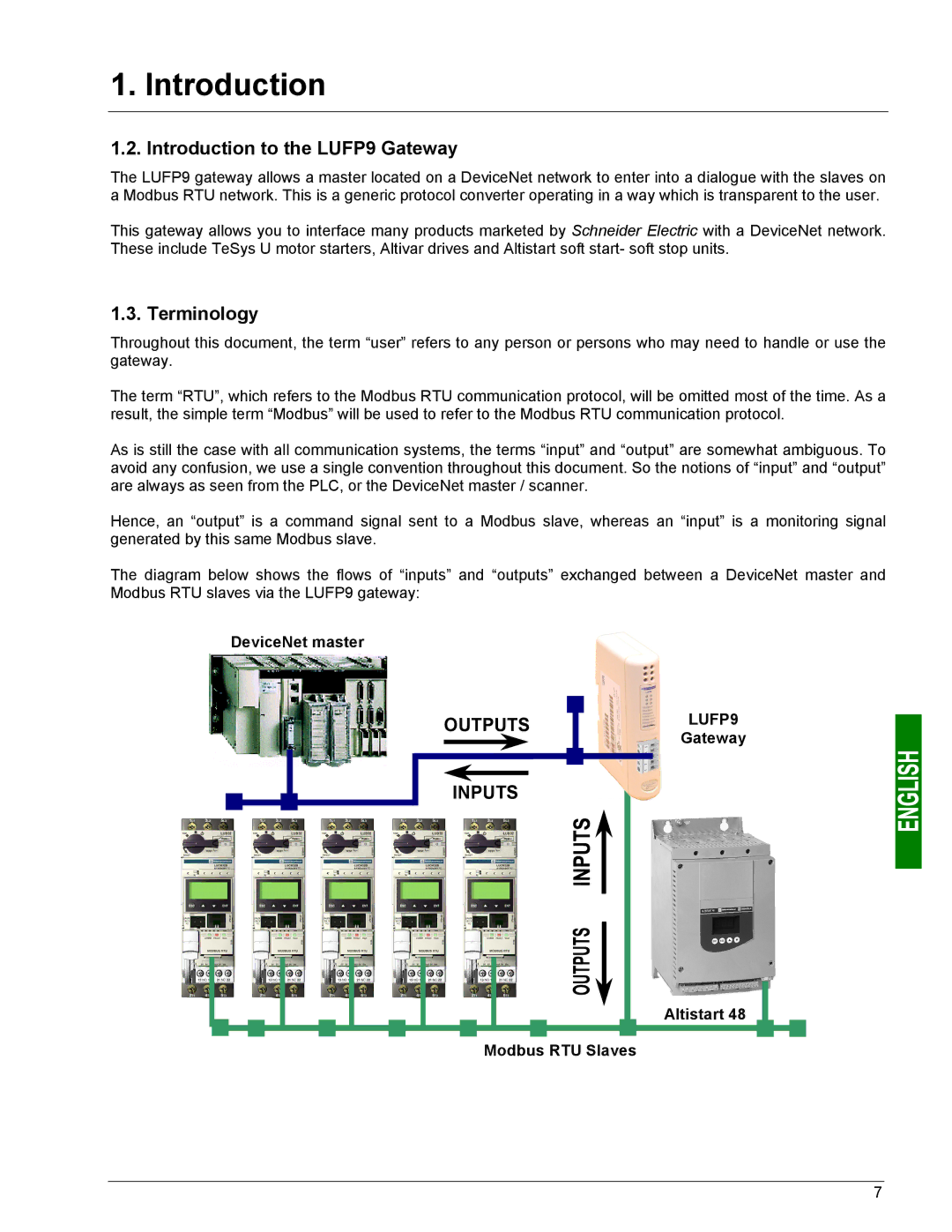
1. Introduction
1.2. Introduction to the LUFP9 Gateway
The LUFP9 gateway allows a master located on a DeviceNet network to enter into a dialogue with the slaves on a Modbus RTU network. This is a generic protocol converter operating in a way which is transparent to the user.
This gateway allows you to interface many products marketed by Schneider Electric with a DeviceNet network. These include TeSys U motor starters, Altivar drives and Altistart soft start- soft stop units.
1.3. Terminology
Throughout this document, the term “user” refers to any person or persons who may need to handle or use the gateway.
The term “RTU”, which refers to the Modbus RTU communication protocol, will be omitted most of the time. As a result, the simple term “Modbus” will be used to refer to the Modbus RTU communication protocol.
As is still the case with all communication systems, the terms “input” and “output” are somewhat ambiguous. To avoid any confusion, we use a single convention throughout this document. So the notions of “input” and “output” are always as seen from the PLC, or the DeviceNet master / scanner.
Hence, an “output” is a command signal sent to a Modbus slave, whereas an “input” is a monitoring signal generated by this same Modbus slave.
The diagram below shows the flows of “inputs” and “outputs” exchanged between a DeviceNet master and Modbus RTU slaves via the LUFP9 gateway:
DeviceNet master
OUTPUTS | LUFP9 |
| Gateway |
INPUTS |
|
| Altistart 48 |
Modbus RTU Slaves
7
